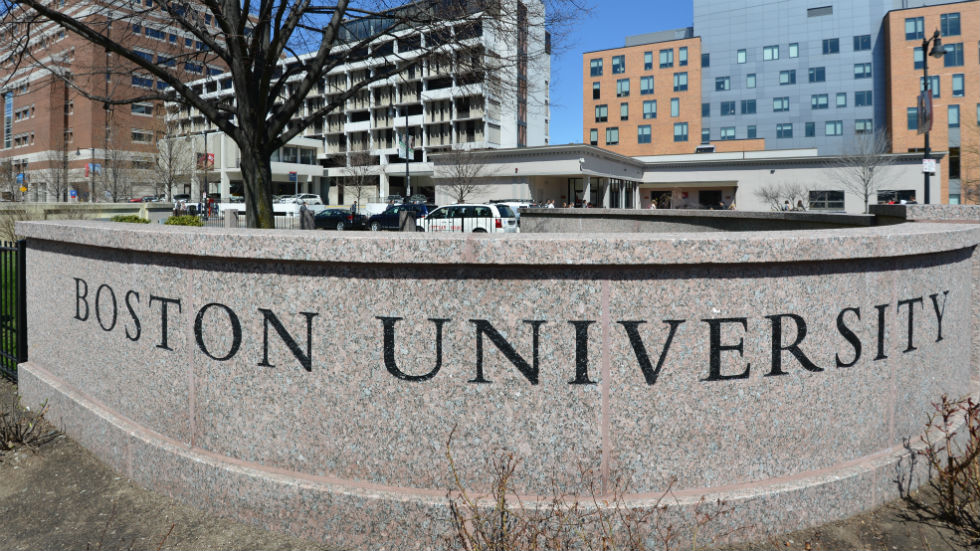
NIH looking into Boston University’s COVID-19 research
The National Institutes of Health (NIH) is looking into COVID-19 research that was conducted at Boston University to determine whether the experiment should have been subject to agency guidelines.
Earlier this month, researchers from the Boston University School of Medicine published findings from a preprint study in which they combined the ancestral COVID-19 virus with genetic data from the circulating omicron strain.
This “chimeric” pathogen was found to escape vaccine-induced immunity. The artificial virus was found to induce severe disease with a mortality rate of 80 percent among laboratory mice, even as the naturally-occurring omicron strain was noted to cause “mild, non-fatal infection.”
“The National Institute of Allergy and Infectious Diseases (NIAID), part of the National Institutes of Health, did not review nor issue awards for experiments described in a pre-print article on SARS-CoV-2 research at Boston University’s National Emerging Infectious Diseases Laboratories (NEIDL),” NIH said in a statement provided to The Hill.
“NIH is examining the matter to determine whether the research conducted was subject to the NIH Grants Policy Statement or met the criteria for review under the HHS Framework for Guiding Funding Decisions about Proposed Research Involving Enhanced Potential Pandemic Pathogens (HHS P3CO Framework).”
The P3CO framework was developed in 2017 to “guide funding decisions” on research that deals with the enhancement of pathogens that could result in higher transmissibility in humans.
A spokesperson for Boston University told The Hill that the school will “cooperate with and assist the NIH as they look into the matter.”
Emily Erbelding, director of NIAID’s division of microbiology and infectious diseases, told Stat that her agency should have been informed on the nature of the research beforehand.
“What we would have wanted to do is to talk about exactly what they wanted to do in advance, and if it met what the P3CO framework defines as enhanced pathogen of pandemic potential, ePPP, we could have put a package forward for review by the committee that’s convened by HHS, the office of the assistant secretary for preparedness and response,” Erbelding told the outlet.
As Stat noted, however, this policy only applies to this sort of research if it is funded by the federal government.
Though it has been reported that the Boston University study was funded by grants from NIAID, both NIH and the school said that this notion had been misconstrued as NIAID funding was acknowledged in the study.
“NIAID funding was acknowledged because it was used to help develop the tools and platforms that were used in this research; they did not fund this research directly,” said the university. “NIH funding was also acknowledged for a shared instrumentation grant that helped support the pathology studies. We believe that funding streams for tools do not require an obligation to report.”
Shortly after the findings were published, the British tabloid Daily Mail published an article that claimed researchers had created a “new deadly COVID strain.” This was soon picked up by several outlets, inciting outrage against Boston University.
The spokesperson for Boston University noted that Daily Mail had not reached out to the school before publishing its article on the study.
The school refuted the Daily Mail’s characterization of its research, saying in a statement earlier this week that the post was “false and inaccurate.”
Ronald B. Corley, director of Boston University’s National Emerging Infectious Diseases Laboratories (NEIDL), said the publication had “sensationalized the message, they misrepresent the study and its goals in its entirety.”
Corley also pushed back against the assertion that researchers had engaged in gain-of-function research, which is when medical researchers artificially alter a pathogen to enhance a process or function in the microscopic organism. In the field of virology, this is sometimes done to see how a virus may mutate in the future.
This form of research has become highly polarizing during the COVID-19 pandemic, with right-wing figures speculating that gain-of-function research may have created the SARS-CoV-2 virus — the popular “lab-leak” theory. However, recent research has suggested that COVID-19 likely occurred naturally before jumping from an animal to humans.
“This research is not gain-of-function research,” Boston University said in a statement. “In fact, this research made the virus replicate less dangerous. Second, the research was reviewed and approved by the Institutional Biosafety Committee (IBC), which consists of scientists as well as local community members. The Boston Public Health Commission also approved the research.”